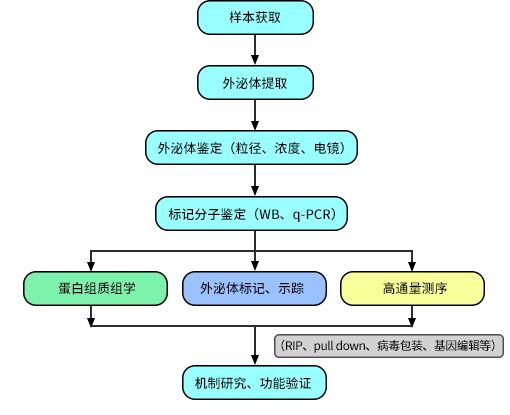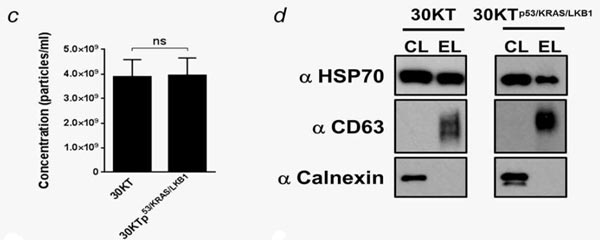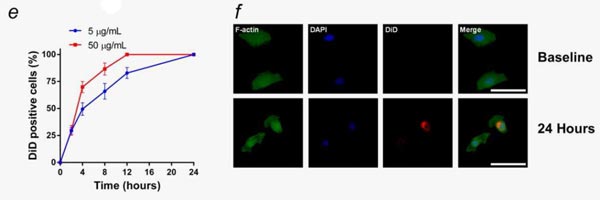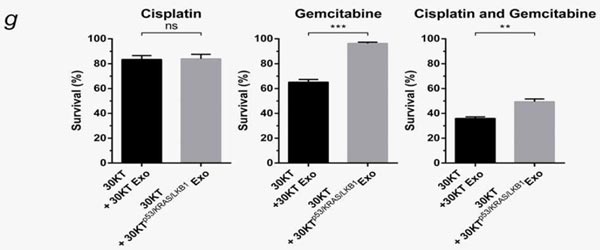外泌体(exosome),特指直径在40-100nm的盘状囊泡。其主要来源于细胞内内溶酶体微粒内陷形成的多囊泡体,经多囊泡体外膜与细胞膜融合后释放到胞外基质中。现已证实可以分泌外泌体的细胞有:肥大细胞、淋巴细胞、树突状细胞、肿瘤细胞、间充质干细胞等。
外泌体在免疫中抗原呈递、肿瘤的生长与迁移、组织损伤的修复等生理病理上起着重要的作用。同时,不同细胞分泌的外泌体具有不用的组成成分和功能,可作为疾病诊断的生物标志物。
服务内容
外泌体研究整体方案设计;
外泌体提取/粒径测量/电镜检测;
外泌体蛋白组/转录组。
技术流程

技术运用(分离、鉴定、检测、示踪、共培养应用部分)

(a) Transmission electron microscopy demonstrates the presence of exosome vesicles (size bar = 200 nm). (b) TRPS analysis of exosomes isolations confirming the expected size range of 30 –150 nm in diameter.

(c) No difference was observed in the total number of exosomes particles secreted from 30KT and 30KTp53/KRAS/LKB1 cells. (d) Western blot confirmation of exosomes markers indicates the presence of HSP70 and CD63 in exosome lysates (EL), but only Calnexin is present in cell lysates (CL) indicating pure preparations.

(e) Time course internalisation of exosome uptake in 30KT cells of DiD-labelled exosomes. (f) Confocal microscopy demonstrating DiD-labelled exosome uptake in 30KT cells after 24 hrs.

(g) After 48 hrs at previously established IC50 values for 30KT cells, 30KT cells exposed to 30KTp53/KRAS/LKB1 exosomes are more resistant to gemcitabine and cisplatin gemcitabine combination therapy.
(引自Lobb RJ, van Amerongen R, Wiegmans A, Ham S, Larsen JE, Möller A. Exosomes derived from mesenchymal non-small cell lung cancer cells promote chemoresistance. Int J Cancer. 2017 Aug 1;141(3):614-620.)
客户提供
细胞、培养上清、血浆(全血、血清)等
最终交付(根据具体项目)
泌体粒径检测报告;
WB检测结果;
q-PCR相关检测结果;
电镜图片;
NGS测序结题报告
蛋白组学结题报告。
服务周期
根据项目情况具体协定










